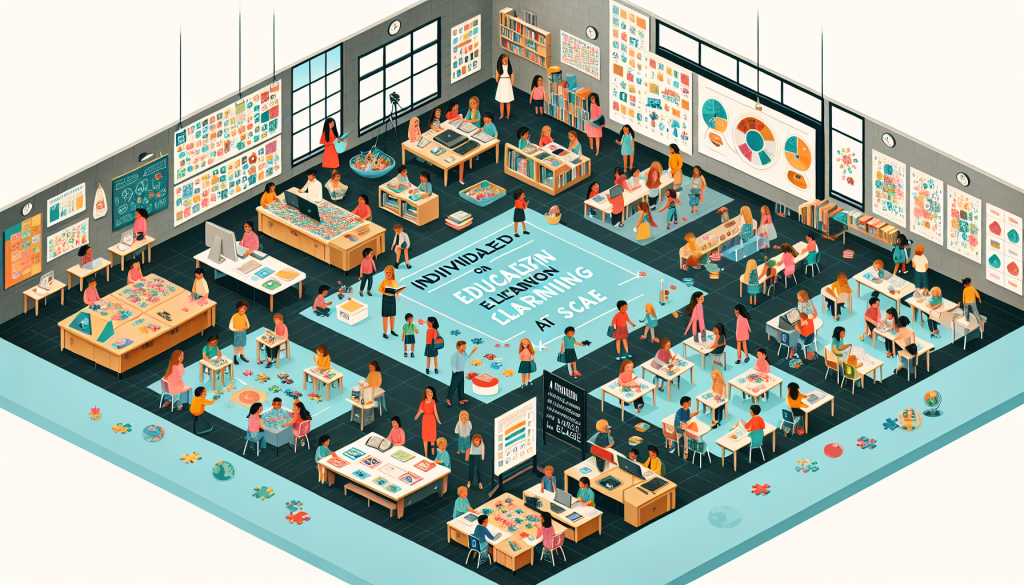
Individualized Education Plans for All: Customizing Learning at Scale
With the rise of technology and data-driven education, personalized learning has become a buzzword in the education industry. Schools and educators are constantly trying to find ways to customize learning for every student, catering to their individual needs and abilities. One way this is being achieved is through the implementation of Individualized Education Plans (IEPs), which aim to provide targeted support for students with specific learning needs. In this article, we will delve deeper into the concept of Individualized Education Plans for all and how it is revolutionizing the education system.
What is an Individualized Education Plan (IEP)?
An IEP is a personalized education plan designed for students with disabilities, learning difficulties, or special needs. It is a legal document that outlines the individualized educational goals, resources, and services that a student requires to achieve academic success. IEPs are developed by a team of professionals, including special education teachers, general education teachers, parents, and sometimes the students themselves. It is a collaborative effort to create a customized learning plan for the student.
Customizing Learning at Scale
The traditional one-size-fits-all approach to education has proven to be inadequate in meeting the diverse needs of students. With an IEP, each student is assessed based on their unique strengths and challenges, and an individualized plan is created accordingly. This allows for a more personalized learning experience, ensuring that students receive the necessary support and accommodations to achieve their full potential.
Furthermore, IEPs allow for data-driven instruction. Through continuous assessment and progress monitoring, educators can adjust and modify the plan as needed to ensure that the student is on track. This individualized attention and constant evaluation result in better learning outcomes, not just for students with special needs but for the entire class. As more students have access to customized education, the overall quality of learning improves at scale.
The Benefits of IEPs
Individualized Education Plans have numerous benefits for both students and educators. Firstly, IEPs empower students to take charge of their learning by involving them in the decision-making process. It also promotes self-advocacy and teaches them valuable skills that can be applied beyond the classroom. For educators, IEPs provide a clear roadmap to support students with special needs, making it easier to provide targeted instruction and interventions. It also fosters collaboration among teachers, leading to a more inclusive learning environment.
Implementing IEPs in the Education System
While IEPs have proven to be effective, implementing them in the education system requires a significant shift in mindset and resources. Schools need to invest in professional development for teachers, create a supportive and inclusive school culture, and ensure that the necessary accommodations and resources are available for students with special needs. With the right support and resources, IEPs can be successfully integrated into the education system, allowing for customized learning at scale.
The Future of Education
The demand for personalized learning is only going to increase in the future, and IEPs provide a framework for achieving it. As technology advances, data-driven instruction and individualized support will become the norm in education. This will not only benefit students with special needs but all students, ensuring that every student receives a high-quality education tailored to their needs.
Conclusion
Individualized Education Plans for all is a step towards a more inclusive and personalized education system. It allows for customized learning at scale, empowering students to reach their full potential and improving learning outcomes for all. As educators, it is our responsibility to embrace IEPs and continue advocating for a more individualized approach to education.
